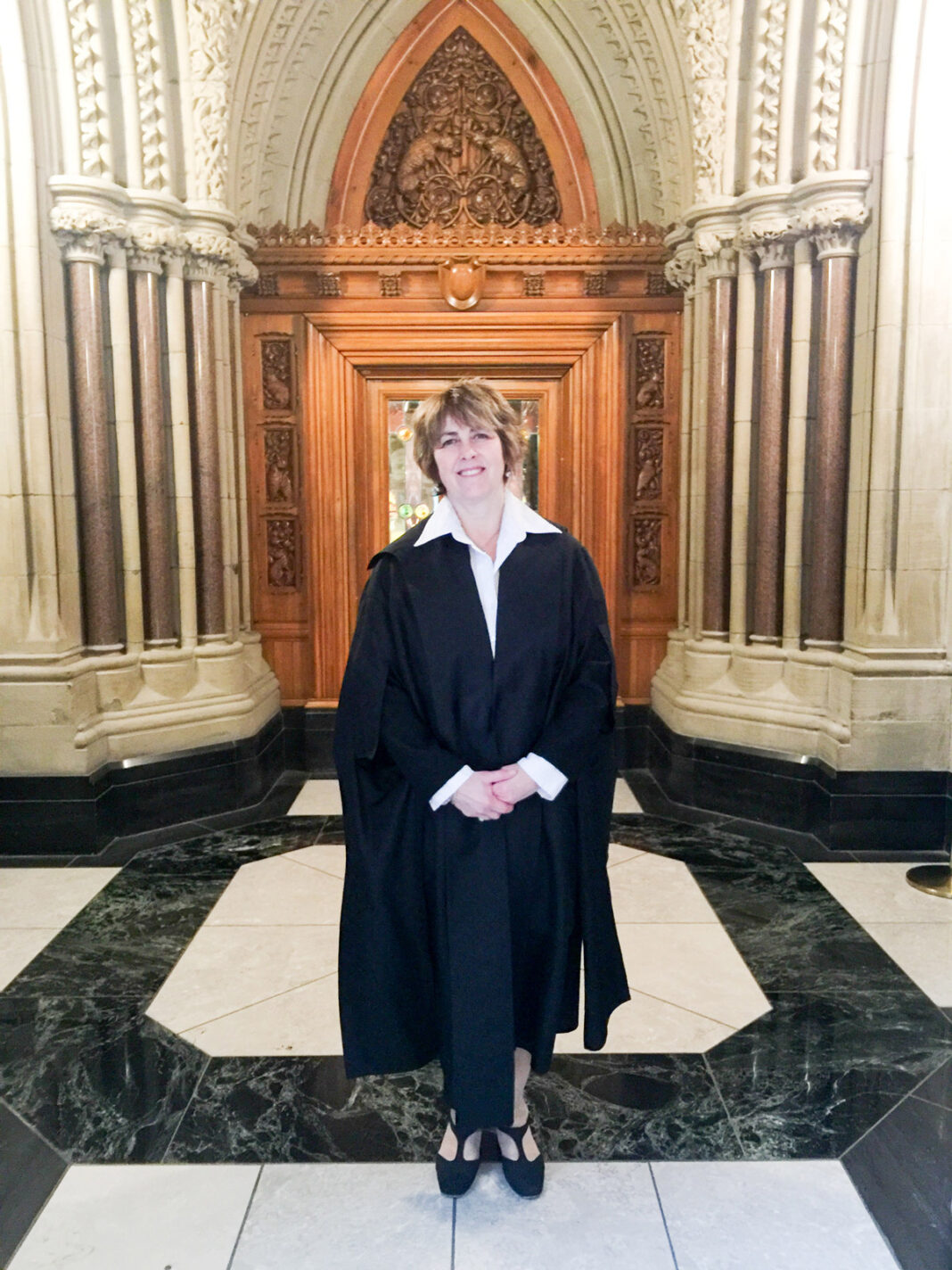OTTAWA—Algoma-Manitoulin-Kapuskasing MP Carol Hughes has announced her intention to run for speaker of the House of Commons. Speaker Anthony Rota resigned following his decision to honour a Ukrainian Second World War veteran from his riding who was later discovered to have served in the Waffen SS Galicia Division.
“After some deliberation, I have made the decision to run for speaker,” said MP Hughes. “It’s a challenging job, but I have the experience, judgment and temperament necessary for this role that is vital to the functioning of our democracy.”
MP Hughes is the most experienced chair occupant currently in the House of Commons, having served as assistant deputy speaker in two previous Parliaments, as well as the current Parliament. Members of Parliament are scheduled to elect the next Speaker on Tuesday, October 3.
“In my time as assistant deputy speaker, I’ve worked to be even-handed and have received feedback from members of all parties affirming this,” said MP Hughes. “I believe now, more than ever, we need a speaker who can both allow important debate to flourish and firmly keep order in the House to ensure Canadians feel represented by their MPs.”
Ms. Hughes issued the following statement last Wednesday on the resignation of Speaker Rota: “Today, House of Commons Speaker Anthony Rota resigned from his position. This follows his invitation to, and recognition of, a man who fought for a Nazi unit in the Second World War during last week’s state visit of Ukrainian President Volodymyr Zelenskyy.”
“I was horrified to learn of the situation that occurred in the House Chamber during President Zelenskyy’s visit,” said MP Hughes, who currently serves as assistant deputy speaker in the House of Commons. “It is the speaker’s duty to vet individuals being honoured in the House, and that work was clearly not done. The speaker is the face of the House of Commons and must act beyond reproach.”
MP Hughes was not in the House of Commons at the time of Friday’s state visit due to prior commitments in the riding.
“I do want to thank Speaker Rota for his service,” said MP Hughes. “I’ve worked with him for a number of years, and have known him to be a decent, honourable man. I appreciated his apology for the incident on Monday, but this event made his ability to continue as Speaker untenable. His actions, regardless of intent, hurt Canadians, particularly Jewish Canadians and World War II veterans, as well as our international reputation.”
“I wish him well and thank him for making the right decision,” she concluded.
All members of the House, except for Ministers of the Crown and leaders of recognized parties, are automatically considered candidates for the position of Speaker. Any member who does not wish to have his or her name appear on the list of candidates must inform the clerk of the House in writing by no later than 6 pm on the day before the election is to take place.
The election is presided over by the MP with the longest period of uninterrupted service who is neither a Minister of the Crown, nor the holder of any office within the House. This MP is vested with all the powers of the chair, save that he or she retains the right to vote in the ensuing election and is unable to cast a deciding vote in the event of an equality of votes being cast for two of the candidates. The mace (symbol of the authority of the House) rests beneath the table until a new speaker is elected. Before proceeding with the election, the member presiding will call upon any candidate for the office of Speaker to address the House for not more than five minutes. When no further candidate rises to speak, the member presiding will leave the chair for 30 minutes and the sitting will be suspended. After this suspension, the sitting resumes and the voting begins.
A single preferential secret ballot system is used to elect the speaker. In that system, each MP lists their preferred candidate for the speaker’s chair in order. Should no candidate receive more than 50 percent plus one on the first count, the candidate receiving the lowest number of votes is dropped from the ballot and the second choices on those ballots are distributed to the remaining candidates, then the third and so on until one candidate has secured the requisite 50 percent plus one. This system is now the one used by most political parties to choose their leaders as it ensures the winner has a broad level of support.
The member presiding will then announce from the chair the name of the successful candidate. After having invited the Speaker-elect to take the chair, the member presiding will step down. The speaker-elect, standing on the upper step of the dais, will then thank the members and assume the chair. The Sergeant-at-Arms will place the mace on the table, signifying that now, with the speaker in the chair, the House is properly constituted. Once the speaker has been elected, the Clerk will destroy all ballot papers and related records, in accordance with the standing orders. The standing orders enjoin the clerk not to divulge in any way the number of ballots cast for any candidate.
The newly elected speaker will then be dragged to the chair by their colleagues in a time-honoured show of “reluctance” to take on the job.
The speaker receives the same pay scale as a minister of the Crown (The speaker earns an annual salary of $287,400—$194,600 as an MP and $92,800 for the speaker’s role), an apartment on Parliament Hill and an official residence “The Farm” (French: La Ferme), a historic farmhouse that is the official residence of the Speaker of the House of Commons of Canada. It is located in Gatineau Park in the community of Kingsmere, Quebec, near Ottawa.
“We are at a unique moment in history and need to re-establish trust in parliament and with our international reputation,” noted Ms. Hughes when contacted by The Expositor for a message to her Island constituents regarding her bid for the Speaker’s chair. “Canadians are looking to us to make Parliament work to deliver results for them and our country. Given my years of experience as assistant deputy speaker and the feedback I have received from some members of all parties who feel that I have been one of the chair occupants that has been consistently firm and impartial on maintaining decorum and in managing the business of Parliament, I believe I am well prepared to take on the role of speaker. I also believe by electing a woman as speaker we are encouraging more women to recognize that they have the ability to take leadership roles, even as Speaker in the House of Commons.”





